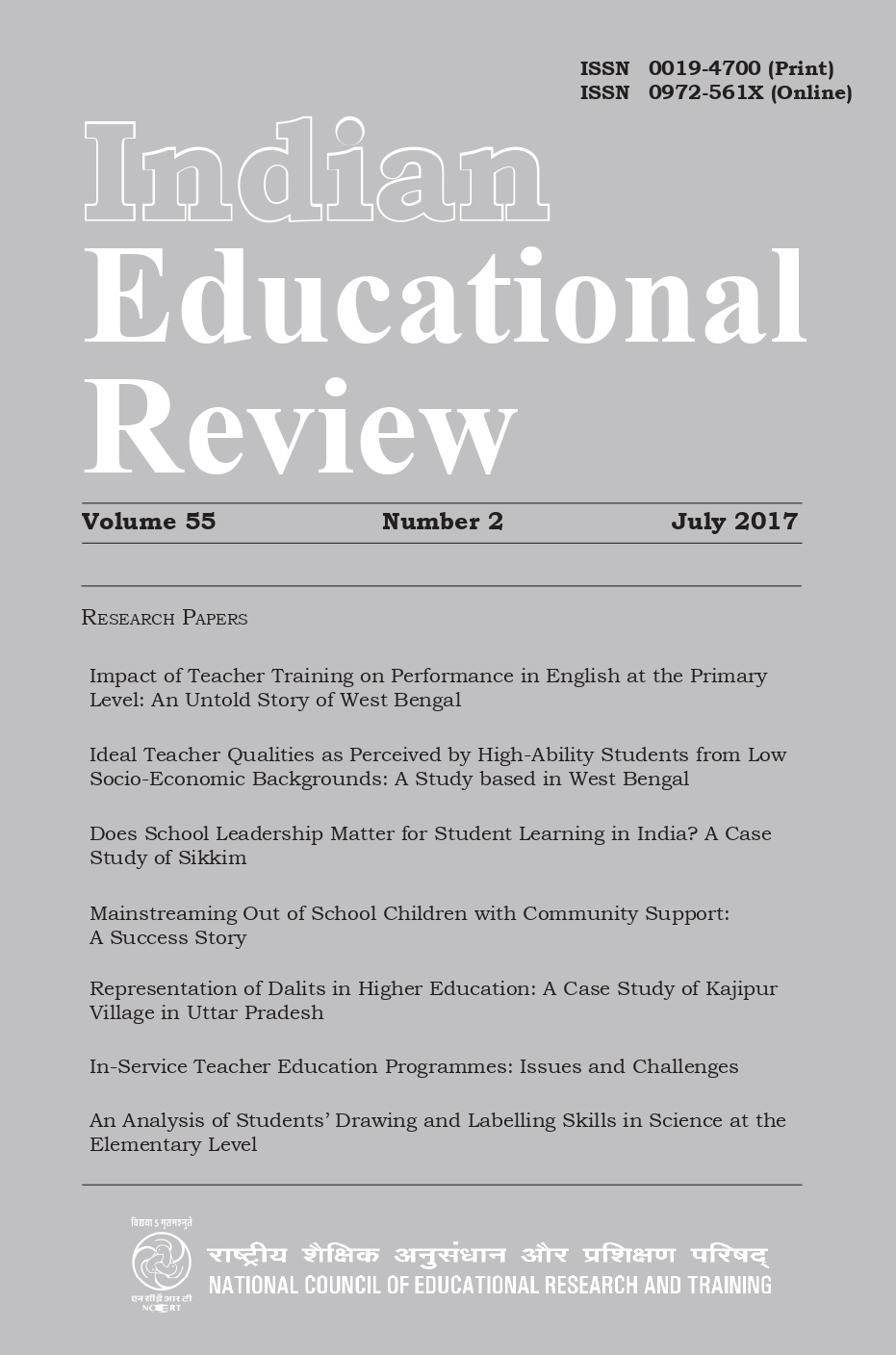Published 2017-07-31
Keywords
- Therapeutic Story,
- Educational Policy
How to Cite
Abstract
Adolescent students from low socio-economic backgrounds studying in government schools located in rural areas are confronted with several cumulative risk factors placing them at-risk for both healthy psychosocial adaptation and academic success. The risks for development among these adolescents include economic factors like low income status that deprives them of several essential resources, school factors like crowded classrooms and understaffing in school leading to minimal social support in the school context, familial factors like lack of parental support for education, parental unemployment, physical abuse in the family, and sociopolitical factors like belonging to lower caste and lack of political support (Annalakshmi, 2015). These risk factors jeopardise not only academic performance and retention in school but also their psychological wellbeing (Mallin, Walker and Levin, 2013). These at-risk students display problems in academic, emotional, social, and behavioural areas of functioning. Reading difficulty seen in younger children from this background grows consistently as they grow into adolescence that directly affects their academic performance. They also experience internalising and externalising problems that make academic success more challenging.

